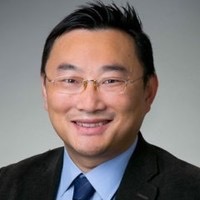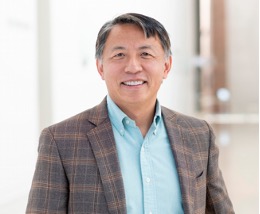 HOME >
SPECIAL SESSIONS
>
Urban Computing: A Convergence of Mechanics, Facilities, Data, Logistics...
HOME >
SPECIAL SESSIONS
>
Urban Computing: A Convergence of Mechanics, Facilities, Data, Logistics...

ZhiQiang Chen
Professor of Civil Engineering, University of Missouri - Kansas City

Haitao Li
Professor and Chair of Supply Chain & Analytics, University of Missouri - St Louis
Modern urban centers represent a massive system of systems. At the physical core of an urban system, constructed facilities and lifelines, designed and built based on first principles (i.e., mechanics), serve as the backbone of societies. Beyond this physical layer, goods and services are produced or provided and flow through facility/lifeline units, connecting citizens to sustain their well-being (i.e., logistics). In this process, various activities generate multimodal data for analytics-based decision-making. Above all, stakeholders access, operate, and manage all these facilities, data, and logistics. For modern cities and communities, it is critical that computing, which transforms both first principles-based and data-enabled processing and simulation into analytics, is efficient and robust across all these activities.
Although the notion of urban computing is not new, having originated when the term 'smart cities' was coined in the early 2000s, we assert that the challenges pertinent to urban computing are even more demanding today due to a multitude of stressors. Climate change introduces unpredictability in weather patterns, affecting infrastructure resilience. Disasters, both natural and human-made, require robust systems for rapid response and recovery. Population decline in certain regions calls for efficient resource reallocation, while environmental pollution necessitates better monitoring and mitigation strategies. These complexities underscore the urgent need for advanced computing solutions to address the multifaceted challenges of modern urban environments.
In this session, we warmly invite global researchers from engineering, computer science, mathematics and statistics, geosciences, business, and other related areas to come together to explore the frontiers of scientific discovery, address pressing challenges, and tackle complex computing problems at an urban scale or in an urban context. Presentations and papers concerning emerging computing technologies, including Generative Artificial Intelligence (GenAI)-enabled computing, edge/cloud collaborative computing, distributed/decentralized computing, mathematical optimization and mechanical simulation at an urban scale, and exploratory quantum computing, are of particular interest. Urban computing-centered applications from various frontier and interdisciplinary fields, not only from traditional civil engineering disciplines (structural, geotechnical, hydraulic, transportation, and construction) but also from supply chains and logistics, social sciences, and other engineering fields, are welcome.